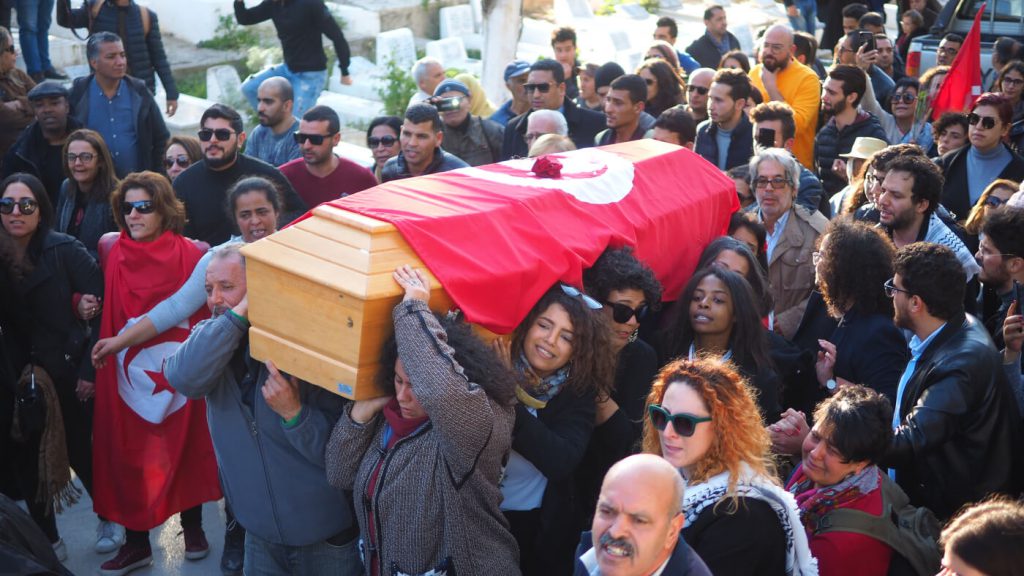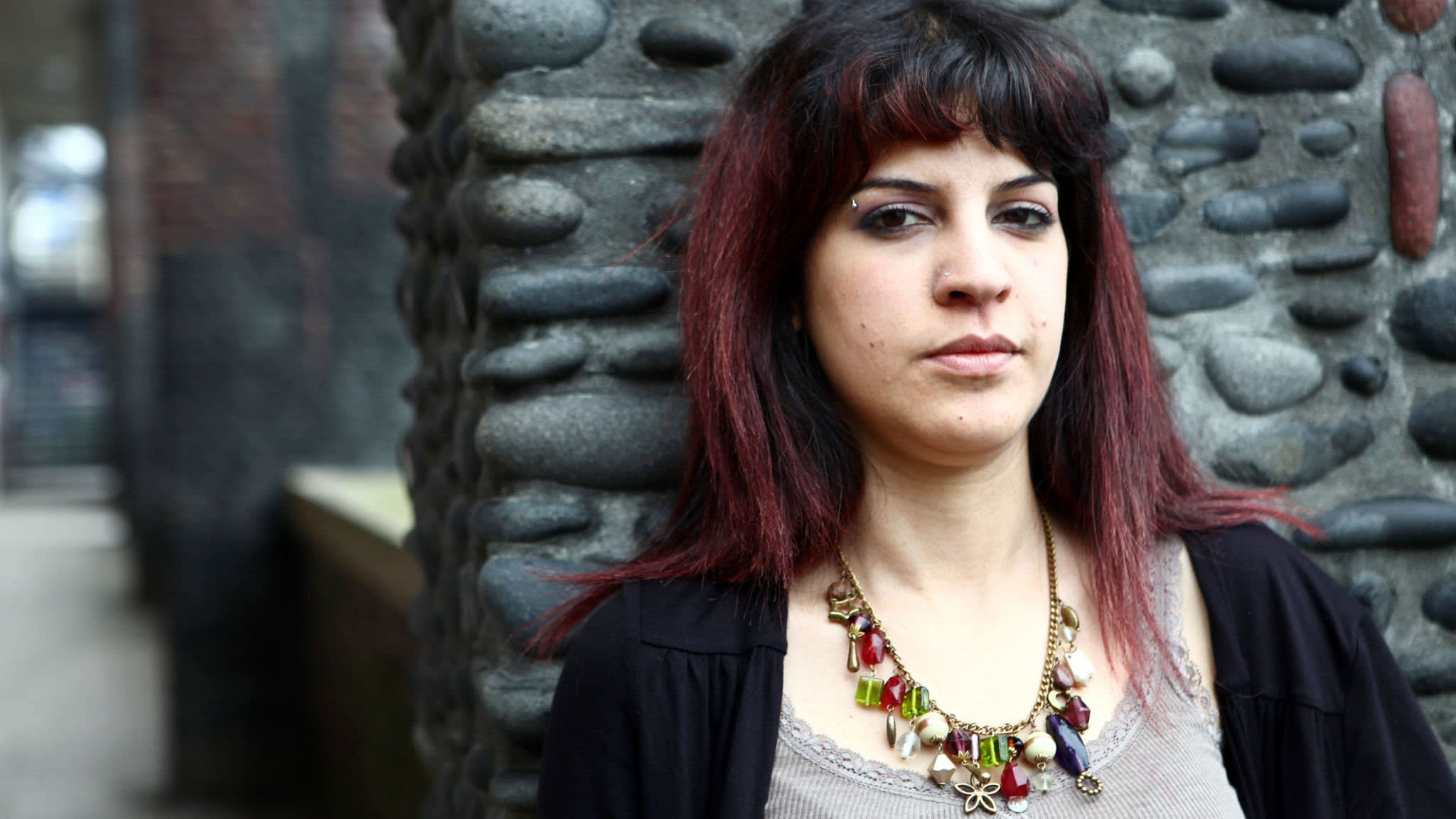Arab Spring icon and Tunisian cyber activist Lina Ben Mhenni passed away this January. Her funeral was a bittersweet reminder of Tunisia’s long-held yearning for a better future. Nine years after the Jasmine Revolution she courageously fought for, the Arab world is still navigating the legacy of its democratic awakening. Her nationally celebrated funeral took place on 28 January 2020. Just like her life, it was a symbolic stance against extremism, violence and torture.
Activism runs in the Ben Mhenni family. Lina’s father, Sadok Ben Mhenni, was a political opponent to the Bourguiba regime in the seventies.
He was imprisoned and tortured for six years before his daughter was born, then co-founded the Tunisian branch of Amnesty International. Her mum taught at university and was active in the teachers’ union. After spending some time teaching Arabic near Boston through a Fulbright scholarship, Lina started blogging in 2007 under the alias “Nightclubbeuse” [Nightclubber in English]. She was documenting nightlife as a young Arab woman. On her blog, the young woman also shared her struggles with lupus, an autoimmune disease she contracted in her early childhood. She fought with the disease all her life and even underwent a kidney transplant donated by her mother in 2007. This transplant allowed her to live through the revolution, until she passed away last month at the age of 36.
On 17 December 2010, a young street vendor named Mohamed Bouazizi set himself on fire in the streets of Sidi Bouzid to protest the social conditions of the country. This event sparked the democratic uprising later known as the Jasmine Revolution. Lina Ben Mhenni was 27 years old at the time and was amongst the first journalists to get on site to film the riots. She uploaded the videos on her blog: “A Tunisian Girl”, where she went on to document the rest of the movement in Arabic, French and English. Her following counted 22,000 subscribers during the revolution. The young blogger would stroll around rural Tunisia with her small camera to film the riots sprouting up across the country. She did not hesitate to take photos of dead bodies and wounds during the most violent times of the protests, sending them to media channels abroad such as France 24 or TF1.
Through her work as a “Facebook generation” reporter, she catalysed a bigger, national cyber-movement that influenced the rest of the Arab World.
Ben Mhenni was on the front-line of the first revolution to be fought by young people armed with computers, blogs and social media. Blogging against a dictatorship can seem like a virtual fight, but it certainly has real-life consequences. The deaths, immolations and arrests of the revolution were real. Showing her face, blogging and tweeting under her real name was an incredibly courageous act. She was one of the few Tunisian bloggers to do so when President Zine El Abidine Ben Ali was still in power.
The young woman was nominated for a Nobel Prize in 2011 and received the Rome Prize for Peace and Humanitarian Action as well as the Ischia International Prize for Journalism.

Lina Ben Mhenni’s national funeral was held on Tuesday 28 January 2020. The event took place at the renowned Djellaz cemetery; home to the tombs of numerous Tunisian personalities such as the martyrs of the national liberation movement. It is also where Tunisia’s democratically elected president Essebsi was buried last summer. Hundreds of people showed up to Lina’s funeral, chanting against corruption and for equality. Her coffin was carried by both men and women draped in Tunisian flags: a strong symbol given that Muslim tradition only allows men to accompany coffins to the cemetery. The unconventional procession sparked strong reactions. Some are calling out blasphemy and the desacralisation of the dead, whilst the deemed “immoral” women who carried her coffin received numerous threats and abuse. The presidency of Tunisia however expressed their official support and mourning of the young woman.
After the revolution and the collapse of Ben Ali’s dictatorship, Lina Ben Mhenni kept being “the activist of all causes” as she called herself on her blog. She was vocal about the offensive of islamists on Tunisian society, and police brutality; always defending individual liberties and social equality. One of her latest fights was for the dignity of incarcerated people. She led a ‘books for prisoners’ initiative in collaboration with the World Organisation Against Torture, aiming to open libraries in prisons. Through this initiative, she helped collect more than forty-five thousand books over three years. Her organisation also granted incarcerated Tunisians access to the cinema and theatre.
“I am the activist of all causes”
Lina Ben Mhenni, on her blog
Lina Ben Mhenni’s legacy is already huge. The Tunisian postal services announced the creation of a stamp with Lina’s face on it and the Department of Cultural Affairs is launching a Lina Ben Mhenni fund to support cultural projects for the Tunisian youth. As the chants of her funeral reminded us; the battles she courageously fought aren’t over. One of her latest blog posts was a thank-you note to the women who surround her at the Association of Tunisian women for Democracy, and to her readers. She wrote: “I will never thank my parents enough; they have always lived through my suffering with me and keep supporting me in everything I do. My parents have made me who I am by teaching me the principles of humanism, liberty, honesty and dignity. I am also thinking about our revolution, which is still in fighting despite the treasons. Just like our revolution, I will fight to get out of this difficult time and that is all thanks to your love! As I always say you are my family and I will always wait for you at home”

